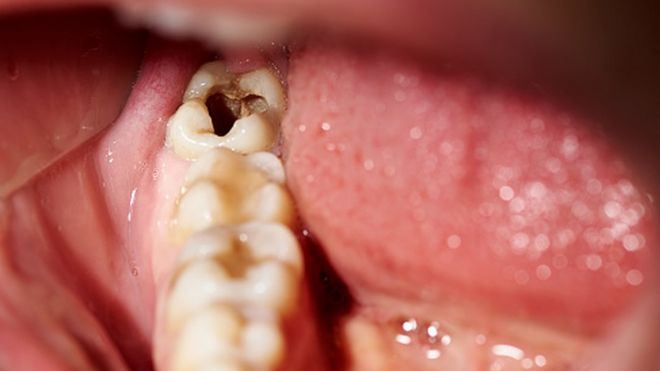How do I know if I have a cavity?
A cavity is a hole that grows bigger and deeper over time. Sometimes, noticeable obvious symptoms such as tooth sensitivity, tooth ache, pain whilst chewing sweets or eating and bad breath can be indicators of dental decay. Sometimes, a dental cavity may not have any symptoms or pain at all.
If a cavity gets large enough, you will be able to see a missing portion of the tooth where there is empty space. It is always best to visit your dentist regularly to have a check up and dental x-rays to assess the teeth and determine whether there are any dental cavities in your mouth. Early detection makes a big difference to treatment options for a tooth with dental decay. Combining regular check-ups with regular at-home dental hygiene will significantly reduce your risk of undiagnosed dental decay.
What are the early signs of a cavity?
- Tooth sensitivity
- Sharp pain on eating hot/cold/ sweet food
- Prolonged pain
- Areas on the teeth becoming patchy and chalky
- Colour changes from white to yellow
- Food trapping
Cavities can manifest on different areas of the tooth, the most common being the biting surfaces, in between teeth and on exposed root surfaces.
Can a cavity go away by itself?
Tooth decay can be stopped or reversed at its early stage. Enamel can repair itself using minerals from saliva and from consistent fluoride application. A cavity which has broken down or entered into the second layer of tooth known as the dentine – cannot be stopped and will not go away! At this point something must be done!
What causes a cavity?
Plaque is a colourless, sticky film of bacteria which constantly forms on teeth, this is the reason why we must always brush twice daily and floss in between our teeth to remove the plaque. Bacteria react to the foods we eat, in particular with sugars which then attack and weaken tooth enamel (the outer protective layer covering our teeth).
How can I prevent a cavity from forming?
- Brushing twice daily
- Using a fluoridated toothpaste to neutralise acids and remineralise the teeth
- Clean in between the teeth using floss for food which may be stuck
- Eat a healthy diet with limited sugary food and drinks
- Schedule regular dental visits, approximately every 6 months
- Remember to change your toothbrush every 3 months to avoid bacteria building up on the bristles
https://www.oralb.com.au/en-au/oral-care-topics/what-is-a-cavity
